protestant
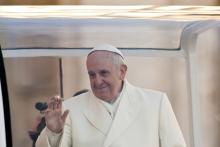
The other day I observed a Twitter exchange between Pope Francis and Miroslav Volf.
Pope Francis (@Pontifex) Tweeted:
“God does not reveal himself in strength or power, but in the weakness and fragility of a newborn babe.”
To which Miroslav Volf (@MiroslavVolf) replied:
“@Pontifex How true! And yet the babe grew and taught with power and authority, and the crucified one was raised from the dead in glory.”
Since moving to the Navajo reservation more than a decade ago, I have done much thinking, studying, praying, and reflecting on the dynamics between power and authority. And God has given me a few insights over the years. So when I read these tweets I had an instant desire to jump in and be a part of the discussion.
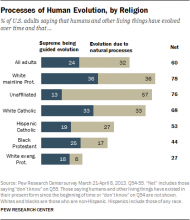
As evolution remains a contentious issue for many public schools, a new survey suggests that views on the question are driven by Americans’ religious affiliation more than their level of education.
Overall, six in 10 Americans say that humans have evolved over time, while one-third reject the idea of human evolution, according to a new analysis by the Pew Research Center. The one-third of Americans who reject human evolution has remained mostly unchanged since a 2009 Pew survey.
About one in four American adults say that “a supreme being guided the evolution of living things for the purpose of creating humans and other life in the form it exists today.”
While education matters, the new analysis suggests that religion appears to have more influence than level of education on evolution. The 21-point difference between college graduates and high school graduates who believe in evolution, for example, is less stark than the 49-point difference between mainline Protestants and evangelicals.
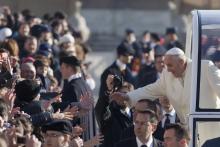
The year 2013 ushered in a number of data milestones in American public opinion. Here is a sampling reported by the Pew Research Center.

The news that immigration reform may be dead—at least for this year—isn’t likely to sit well in many of America’s churches.
A new poll from Nashville-based LifeWay Research finds nearly six in 10 senior pastors of Protestant churches support immigration reform that includes a path to citizenship.
Many of those pastors hope reform will help them minister to more Hispanic Americans. But few say the current immigration system hurts current members of their flocks.
The poll of 1,007 senior pastors of Protestant churches, conducted Sept. 4-19, comes as immigration reform has stalled on Capitol Hill.
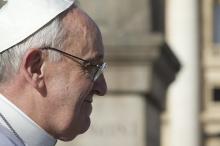
When Pope Benedict XVI retired in February, I wrote an article in appreciation for his papacy. While he served as a great model of humility in stepping down from his role as Pope, what I appreciated more about Pope Benedict was his first encyclical, turned into a book called God is Love . In it, Benedict wrote these profound words:
Love is possible, and we are able to practice it because we are created in the image of God. To experience love and in this way to cause the light of God to enter into the world — this is the invitation I would like to extend with the present encyclical. (93)
God is Love is a powerful written reminder of the essence of Christianity. I hope more Christians of all stripes will read it.
Indeed, I appreciate Benedict for writing those beautiful words, but I love Pope Francis because he’s publicly living those words.
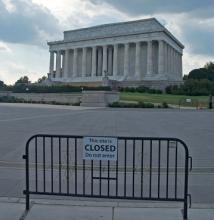
As the government shutdown enters its second week, some religious groups are starting to feel the pinch, and they’re also finding ways to reach out.
More than 90 Catholic, evangelical, and Protestant leaders have signed a statement rebuking “pro-life” lawmakers for the shutdown, saying they are “appalled that elected officials are pursuing an extreme ideological agenda at the expense of the working poor and vulnerable families” who won’t receive government benefits.
Starting Wednesday, evangelical, Catholic, and mainline Protestant leaders will hold a daily “Faithful Filibuster” on Capitol Hill with Bible verses on the poor “to remind Congress that its dysfunction hurts struggling families and low-income people.”
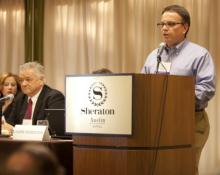
The Christian mission field “is a magnet” for sex abusers, Boz Tchividjian, a Liberty University law professor who investigates abuse said Thursday to a room of journalists.
While comparing evangelicals to Catholics on abuse response, ”I think we are worse,” he said at the Religion Newswriters Association conference. But it’s harder to track.
“Protestants can be very arrogant when pointing to Catholics,” said Tchividjian, a grandson of evangelist Billy Graham and executive director of Godly Response to Abuse in the Christian Environment (GRACE), which has investigated sex abuse allegations.

Nearly 35 years after conservatives launched a takeover of the Southern Baptist Convention, a new divide is emerging — this time over the teachings of 16th-century Reformer John Calvin — that threatens to upend the nation’s largest Protestant denomination.
When Southern Baptist delegates gather for their annual meeting next week in Houston, they’ll be presented with a report, “Truth, Trust, and Testimony in a Time of Tension,” that focuses on the growing popularity of Calvinism among Southern Baptist pastors and seminaries.
At stake are fundamental beliefs on who can be “saved,” the need for evangelism, and whether Baptists will retread familiar battlefields on the proper roles of men and women.
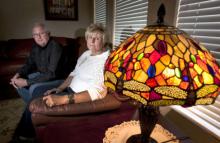
DRAPER, Utah — As young brothers, Kris, and Kourt McGuire often spent hours chasing the shimmering dragonflies that floated above a lush, green pasture behind their house.
One day, when their mom told them to come inside to clean their room, they silently obeyed — or so she thought. After a time, she went to check on the two youngest of her four sons. She found their bedroom alive with dragonflies, which they had tied with strings hung from the ceiling.
She smiled, and they all broke into laughter.
It’s one of Lyn McGuire’s favorite recollections of the two boys — a memory that predates the heartache of losing them both.
Kris died at age 8 in 1986, when a car hit him on the way to school. Kourt died about 10 years later, at age 17, killing himself amid depression and the still-stinging absence of his older brother.
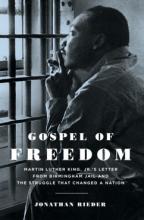
Fifty years after the Rev. Martin Luther King Jr. challenged white church leaders to confront racism, an ecumenical network has responded to his “Letter from Birmingham Jail.”
“We proclaim that, while our context today is different, the call is the same as in 1963 — for followers of Christ to stand together, to work together, and to struggle together for justice,” declared Christian Churches Together in the USA in a 20-page document.
The statement, which is linked to an April 14-15 ecumenical gathering in Birmingham, Ala., includes confessions from church bodies about their silence and slow pace in addressing racial injustice.
“The church must lead rather than follow in the march toward justice,” it says.

I’m known for holding an alternative view on salvation than many Christians – even Disciples — maintain, in that I do not adhere to the doctrine that Jesus died for our sins. I know there are lots of scriptures to back this position, and one can also use scripture to justify other explanations for Jesus’ death. As many of us have seen, the Bible can be, and has been, used to justify nearly any position we care to use it to support. As for me, I’ve done years of searching, praying, discussing, and reading, and my conclusion is that it is the love of God as manifest by Jesus that is redemptive, and not Jesus’ blood.
I know some folks will likely stop here, discrediting anything else I have to say because of this perspective, which is unfortunate, but which I also understand. But a family member recently asked me about my take on communion if, in fact, I don’t ascribe to the idea that Jesus was saying “this is my body broken and my blood poured out for the remission of your sins.”
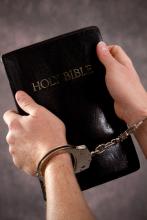
TORONTO — The Canadian government is canceling the contracts of all non-Christian chaplains at federal prisons.
By next spring, Muslim, Jewish, Sikh and other non-Christian inmates will be expected to turn to Christian prison chaplains for religious counsel and guidance.
In an email to reporters on Oct. 4, the office of Public Safety Minister Vic Toews, who is responsible for Canada's federal penitentiaries, said the government "strongly supports the freedom of religion for all Canadians, including prisoners."

As the Republicans leave Tampa and the Democrats prepare to gather in Charlotte, one dynamic is immediately clear in both parties: For the first time since Abraham Lincoln ran in 1860, no white Protestant will be on the ticket of either major party.
Mitt Romney, the newly minted Republican nominee for the White House, is a Mormon, though he clearly does not want to talk publicly about how his faith shapes his identity and personal values. Paul Ryan, his running mate, is a Catholic, a fact Romney made sure to mention in the vice presidential rollout ceremony. Indeed, Romney’s two closest rivals in the GOP presidential primaries were also Catholics: Newt Gingrich and Rick Santorum.
On the Democratic side, President Obama is an African-American Protestant despite the fetid conspiratorial screams that the president is a crypto-Muslim. Finally, Vice President Joe Biden, like Ryan, is an Irish-American Catholic.
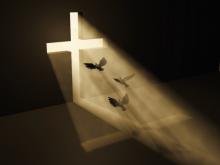
Billy Sunday was the most famous evangelist in America during the first two decades of the 20th century. Without the aid of loudspeakers, TV or radio, Sunday preached to over 100 million people the classic evangelical gospel that remains familiar to many people today. Repent and believe in Jesus, who died on the cross for your sins, and be saved from eternal damnation. The simplicity of Sunday’s message prompted millions of early 20th century Americans to examine the state of their souls and consider their eternal fates. Yet when it came to conscientious objectors during World War I, Sunday spared no mercy:
The man who breaks all the rules but at last dies fighting in the trenches is better than you God-forsaken mutts who won’t enlist.
Throughout our nation’s history, it’s been an axiom that Presidents lead us into wars, while Christians provide the flags and the crosses. Barring a few notable exceptions — Anabaptists, Quakers, and early Pentecostals — evangelical fervor has often promoted an uncritical nationalism that baptizes American military adventures with religious legitimacy. It’s no coincidence that the setting of Mark Twain’s famous War Prayer —in which Twain delivers a devastating critique of the use of religion to justify imperialism — is a Protestant Christian church. Given the historical record, it may seem the deck is stacked against American evangelicals organizing into a comprehensive peace movement — yet that’s exactly what’s happening.
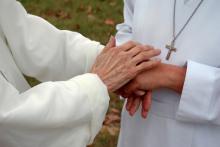
The crowd in an Atlanta church on Wednesday night was mostly Protestants, mostly preachers.
The speaker was a professor of preaching at Union Theological Seminary in New York City – one of the icons of the mainstream Protestant world.
Yet Barbara Lundblad’s message was a call for the 1,000 or so people gathered for the annual Festival of Homiletics to “stand with these courageous Roman Catholic sisters.”
She was referring, of course, to the recent crackdown by the Vatican on the Leadership Conference of Women Religious, the organization that represents about 80 percent of the nuns in the U.S.
Lundblad drew on the famous story of Mary, having just learned she was pregnant with Jesus, visiting her cousin, Elizabeth, who was also improbably pregnant.
The Gospel of Luke says that Mary “entered the house of Zechariah and visited Elizabeth.” Lundblad pondered why Luke felt it necessary to put Zechariah in the story at this point. She let that hang unanswered.
Then she noted that when Elizabeth saw Mary, the baby leapt in her womb in recognition of Jesus – a sign that women often come to theology through the experiences of their bodies.
Lundblad said wryly, “Surely Elizabeth would not have been allowed to testify before the Congressional committee on contraception” – an all-male committee with all male witnesses, all representing church groups that do not allow the ordination of women.

When Republican presidential hopeful Mitt Romney released his federal tax returns for the past two years, he disclosed that he and his wife, Ann, gave about 10 percent of their income to their church, a well-known religious practice called tithing.
In that way, the Romneys are typical Mormons, members of a church that is exceptionally serious about the Old Testament mandate to give away one-tenth of one's income.
But compared to other religious Americans, the Romneys and other Mormons are fairly atypical when it comes to passing the plate. Across the rest of the religious landscape, tithing is often preached but rarely realized.
Research into church donations shows a wide range of giving, with Mormons among the most generous relative to income, followed by conservative Christians, mainline Protestants and Catholics last.
Over the past 34 years, Americans' generosity to all churches has been in steady decline, in good times and in bad, said Sylvia Ronsvalle, whose Illinois-based Empty Tomb Inc. tracks donations to Protestant churches.
Ronsvalle's research shows that since 1968, contributions have slowly slumped from 3.11 percent of income to 2.38 percent, despite gains in prosperity.
In her view, churches have failed "to call people to invest in a much larger vision." She believes that explains why giving to missions, distant anti-poverty programs or faraway ministries has sunk faster than giving for the needs of local congregations.

Attack On The Middle Class!!; Union Leader Declined To Endorse Romney Because He ‘Represents The One Percent’; And Now It's Time For The Occupy Obituaries; Pastor Fights HIV Stigma In Southern Town; Do Protestants Need Some Holy Humor?; A Preaching 'Genius' Faces His Toughest Convert; GOP Foreign Policy: Neoconservatives Looking For A Comeback In 2012.
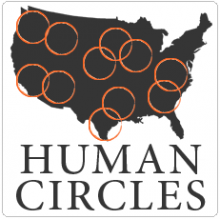
The New York City Human Circle will be replicated throughout across the nation, when faith leaders host Human Circles as members of the Sojourners National Mobilizing Circle, which is bringing together faith and community leaders to organize faith-rooted actions in their communities.
The purpose of these circles is not only to lobby for the poor but also with them.
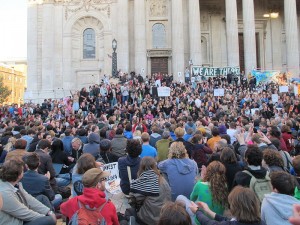
On Sunday (10/30), the Anglican Bishop of London, the Rt. Rev. Dr. Richard Chartres, met with Occupy London protesters who have encamped for several weeks now on the ground of St. Paul's Cathedral in London, in an ongoing attempt to get the demonstrators to leave church grounds.
Chartres wants the Occupiers to vacate cathedral property and stopped short, in an interview with the BBC yesterday, of saying he would oppose their forcible removal. Other British clergy, however, are rallying behind the demonstrators, saying they would physically (and spiritually) surround protesters at St. Paul's with a circle of prayer or "circle of protection."